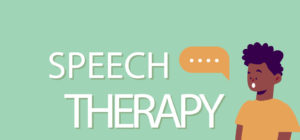Speech therapy is a service where healthcare professionals called speech therapists (STs) work to help individuals of all ages with communication and swallowing difficulties to improve in their communication and eat and drink safely. Some of the people speech therapists work with include, but are not limited to:
- Infants and children with feeding difficulties (e.g. premature babies, children with cerebral palsy)
- Children with speech and language difficulties
- Children with autism and other learning issues*
- Children who have hearing impairments
- Adults with speech, language and/or swallowing difficulties following
- Stroke or brain injury
- Brain tumours
- Degenerative neurological diseases, such as Parkinson’s disease and dementia
- Head and neck cancers
Typically, during an appointment with an ST, the ST will assess and determine the nature and difficulty of communication and/or swallowing issues. The ST will then make suitable recommendations based on the results of the assessment.
Why Do People Need Speech Therapy?
Speech therapy can help to improve several communication and swallowing difficulties or disorders, such as:
- Articulation Disorders or Delays
This refers to difficulties with pronunciation, where an individual may add, replace, omit or distort sounds in words. An example would be saying ‘yellow’ as ‘yeyow’, where the ‘l’ sound is replaced by the ‘y’ sound. - Fluency Disorders
Fluency disorders refer to difficulties with the rate, flow, speed and rhythm of speech. Stuttering, whereby an individual repeats sounds in words or has awkward pauses in between words or part of words in speech, is an example of a widely known fluency disorder. - Resonance Disorders
This could appear as speech which sounds overly nasal, or as though an individual is having a prolonged blocked nose. This could be due to blockages or disruptions to air flow in the nasal or oral cavities. Resonance disorders are associated typically with cleft palate, neurological disorders and enlarged tonsils. - Dysarthria
Often caused by strokes or nervous system conditions which affect the facial muscles and function (e.g. multiple sclerosis), dysarthria presents as difficulties in controlling the muscles required for speech. With dysarthria, a person’s speech can appear slow or slurred, or even strained and strangled. - Aphasia
Aphasia affects a person’s ability to understand and use language, either verbally, through reading and writing, or both. Aphasia is known to be an acquired communication disorder, usually caused by stroke. - Cognitive-communication Disorders
When the part of the brain which helps people with thinking is affected, people with cognitive-communication disorders could appear scatterbrained, impulsive, distracted or forgetful. This is usually because of biological problems like abnormal brain development, some neurological conditions, brain injuries or strokes. - Difficulties with Understanding Language (Receptive Language Difficulties)
This refers to difficulties one may have with understanding and comprehending what others say. A person with receptive language difficulties may not be able to follow instructions well, appear disinterested or distracted when someone is speaking to them, or have a limited vocabulary. Some known causes are developmental disorders or issues such as Down Syndrome or autism, developmental delays, hearing loss, or environmental issues (e.g. no language stimulation in the environment), to name a few. - Difficulties with Using Language (Expressive Language Difficulties)
This refers to an individual’s difficulty with conveying or expressing one’s self using language. The hallmarks of expressive language difficulties would be agrammatical and inaccurate language use, such as ‘I write paper’ instead of ‘I am writing on paper’. Similar to receptive language difficulties, some causes of expressive language difficulties are developmental delays, developmental disorders and impairments, and hearing loss. - Social Communication Difficulties
An individual with social communication difficulties would appear awkward or inappropriate. They may not be able to adjust their language for different social situations (e.g. changing their language with a teacher versus a friend), recognise the nonverbals of communication, and communicate for social reasons (e.g. greeting, asking questions). This is known to be a hallmark of autism and may be present in other conditions as well, such as traumatic brain injury or developmental delays.
How Can Speech Therapy Help
Speech therapy can help by recommending suitable techniques for different groups of people depending on their condition. Services for children and adults can differ in terms of the setting therapy normally takes place in, and how therapy is conducted.
For Children
For children, speech therapy may take place in a one-to-one setting, in a classroom or small group. This is dependent on the nature of the communication issue and the place where therapy occurs. Therapy activities and exercises will vary according to the child’s age and presenting issues. Some examples of therapy activities you can expect from an ST working with the child are as below:
- Using books, pictures and objects to help with language learning
- Using play as a medium for language intervention and stimulation
- Teaching and modelling speech sounds and syllables for a child
- Issuing homework and providing strategies for parents and caregivers to work with their child to improve their communication and/or swallowing issues
For Adults
For adults, speech therapy for adults often takes place in a one-to-one setting. Therapy exercises for adults focus on helping with swallowing function, speech, language, and cognitive-communication. Exercises may include:
- Working on thinking skills such as problem solving, memory, and organisation to improve cognitive-communication
- Conversation strategies to improve social communication
- Exercises targeting breathing, or strengthening muscles in the mouth
- Depending on the person’s age, type and severity of the communication issue, underlying medical conditions, and frequency of therapy services, the amount of time someone needs for speech therapy will vary.
Article: Homage




